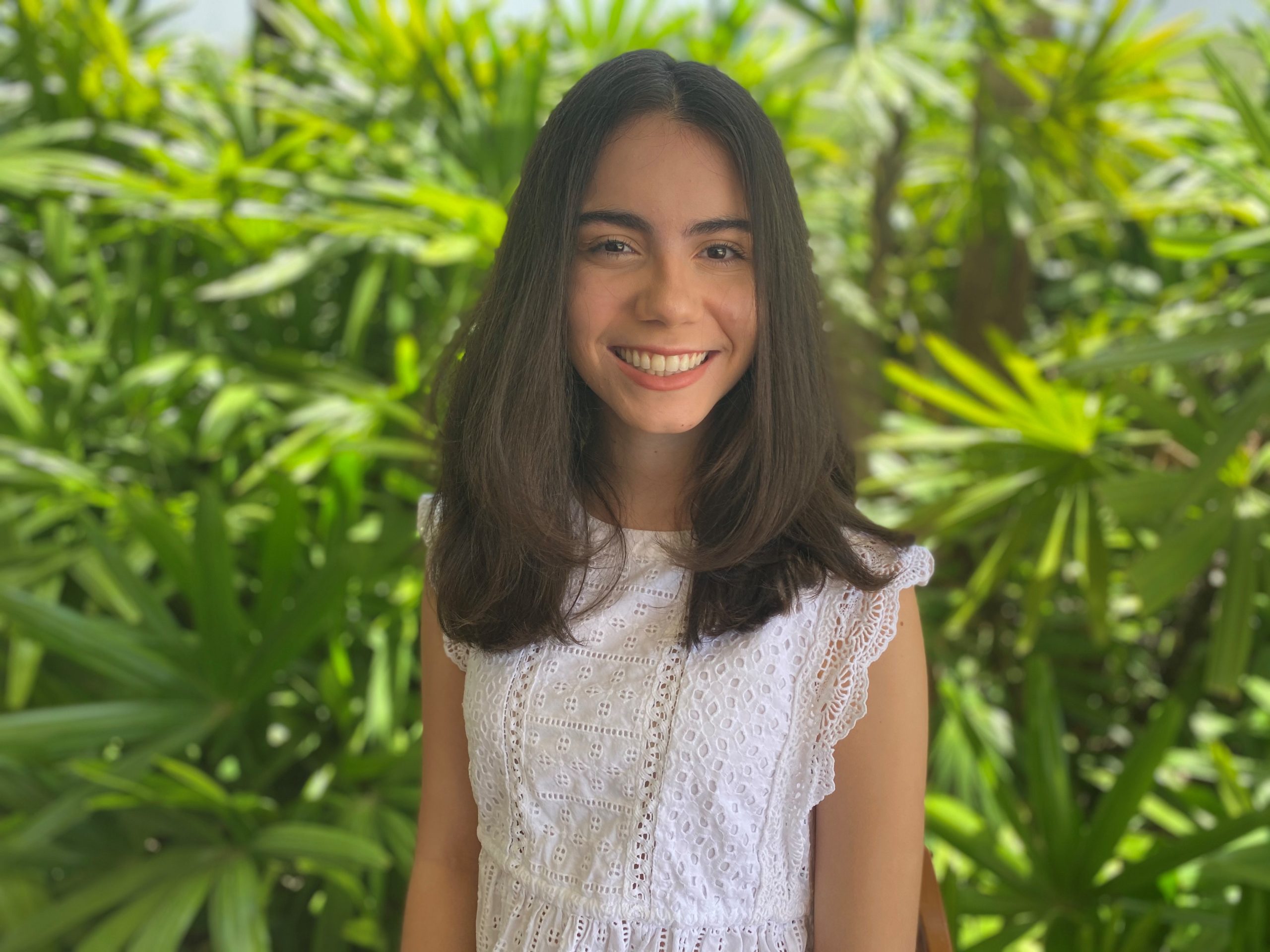Ivana López Nieves ’22 investigates dance movement therapy at the molecular level

Dancing has numerous proven health benefits, including weight loss, stress reduction, and increased flexibility and self-confidence. But in a clinical setting, it may also help treat and prevent a number of neurodegenerative and psychological diseases, according to a recent study by Ivana López Nieves ’22.
López Nieves, a biochemistry and molecular biology major on the prehealth track, spent her summer researching the effectiveness of dance movement therapy as a potential treatment or preventative measure for diseases like Alzheimer’s, Parkinson’s, dementia, and depression. Her study, funded through a Steinbrecher Fellowship, focuses on the biochemical effects of dancing, including how dance movement therapy can alleviate symptoms by altering the concentration of specific biomarkers.
Through her research, López Nieves compared dancing to other forms of exercise and conventional treatments to understand how dance movement therapy may be a more effective alternative.
“The project was designed based on my belief that not all medical treatments benefit all patients in the same way. I’m interested in evaluating nonconventional forms of treatment that are not very popular in clinical settings, and one of those is dance movement therapy,” López Nieves says. “It has been used a lot in psychology, and in recent years has started to move into medical settings, and I wanted to explore that further.”
López Nieves found that dance movement therapy increases serotonin, helps preserve neurons, improves skeletal health, aids in bone preservation, and has cardiovascular health benefits. Dancing can also help enhance the effects of pharmacological medications, she says, and studies have shown that when compared with other forms of aerobic exercise or physical activity, dance can result in better health outcomes.
“It’s very important that patients enjoy and feel comfortable with the type of treatment they’re doing because for a treatment to be effective, the patient has to adhere to it,” she says. “Dancing not only is an alternative treatment option, but can represent a more effective form of treatment.”
She now is looking into publishing her findings in a scientific journal.
Story continues after video
When López Nieves first applied for the Steinbrecher Fellowship, her research proposal included joining the Jakobsche Lab to synthesize molecular tools designed to study amyloid fibrils — protein aggregates that often result in Alzheimer’s and Parkinson’s diseases. Then, the COVID-19 pandemic hit. With the help of Professor Nancy Budwig, director of the Steinbrecher Fellowship Program, and Professor Charles Jakobsche, her research adviser, López Nieves modified her summer project so she could complete it remotely from her home in Puerto Rico.
“Given that my main interests lie around understanding health at a molecular level, we opted to do a literature review through which I could learn, discover, and then share with the Clark community the biochemistry of the underlying health outcomes that result from dance movement therapy,” she says. “This way, I was still able to keep learning about molecular interactions and biochemical pathways and their application to clinical treatments.”
López Nieves says studying diseases at the molecular and cellular levels has given her a better overall understanding of those ailments. While diseases cause physical symptoms that can be easily observed, she explains, those symptoms are rooted in malfunctions occurring at a biochemical level, such as a cell mutation, the deficit of a hormone, or the absence of a neurotransmitter.
“Studying these diseases at the smallest scale possible allows for a better understanding of the bigger picture,” she says. “This results in a better comprehension of what would be the best medication or treatment for each particular disease. The complexities and thoroughness of the human body are what have led me to be interested in medicine.”
López Nieves credits the Steinbrecher Fellowship with giving her the resources to combine her interests in biochemistry and nonpharmacological treatments and to apply those disciplines in a clinical setting. She also enjoyed the ability to tailor her project to one of her own hobbies. As a lifelong dancer and member of Clark’s student-run Salsa Encendida performance group, López Nieves says the physical and emotional benefits of dancing cannot be overstated. Salsa dancing, in particular, has helped her stay in touch with her culture and feel connected to home.
In addition to her Steinbrecher Fellowship, López Nieves completed an internship at Columbia University Medical Center last summer, where she learned about health policy, health disparities, and interdisciplinary collaborations among health professionals. There, she shadowed physicians who specialized in internal medicine, anesthesiology, neonatology, and OB-GYN at NewYork-Presbyterian Hospital. She also joined the Clark Undergraduate Student Council’s ad-hoc menstrual equity committee last fall, through which she helped place free pad and tampon dispensers at strategic locations across campus. Now, she is in the process of establishing a new student-run organization — Menstrual Equity Alliance — with the help of Sociology Professor Melissa Butler. The group’s goal is to provide menstrual products to homeless shelters around Worcester and increase education about menstrual health.
“It’s important to have these products and eliminate the stigma that comes with menstruation,” López Nieves says. “It’s a taboo topic in our society, and we want to raise conversations and awareness.”
Professor Butler’s Introduction to Sociology course also piqued López Nieves’ interest in community health care by giving her new insight on how social structures like government, education, religion, culture, and economics can affect the health of individuals.
After graduating from Clark, López Nieves plans to attend medical school with the goal of becoming a physician.
“As a Hispanic woman and a native Spanish speaker, my long-term goal is to provide medical care to Spanish-speaking patients, who often do not seek needed medical attention because of the language barrier that prevents them from understanding their medical providers,” she says. “I aspire to practice medicine with empathy and inclusivity.”
Through the Career Connections Center, you can find a job or internship, connect with employers and alumni career professionals, work on your resume, practice your interview skills, obtain advice, research careers, and much more. #clarkconnectsyou


